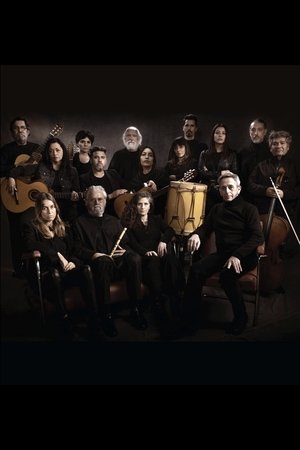Quilapayún (b. 1965)
Birthplace:
Santiago de Chile, Chile
Born:
January 1, 1965
Quilapayún are a folk music group from Chile and among the longest lasting and most influential ambassadors of the Nueva Canción Chilena movement and genre. Formed during the mid-1960s, the group became inseparable with the revolution that occurred in the popular music of the country under the Popular Unity Government of Salvador Allende. Since its formation and during its forty-year history – both in Chile and during its lengthy period of exile in France – the group has seen modifications to its personnel lineup and the subject and content of its work. Controversy regarding irreconcilable differences with the current and former group directors led to the division into two distinctive Quilapayún ensembles; one in Chile (Quilapayún-Histórico) and one in France (Quilapayún-France). Quilapayún originated in 1965 when Julio Numhauser and the brothers Julio and Eduardo Carrasco formed a folk music trio, which they simply called "the three bearded men" (viz. Quila-Payún) in the Mapuche language (viz. Mapudungun – the language of the people native to the region that is now the south of Chile, the Araucanians). Their first public performances were at the Universidad de Chile in Valparaíso, organized by their first musical director, Ángel Parra (son of Violeta Parra). In 1966 the group won notice for its Andean music as well as the members' black ponchos, which became the group's trademark. During this time they won their first prize, La Guitarra de Oro (The Golden Guitar) in the Primer Festival Nacional del Folklore "Chile Múltiple" (First National Festival of Folklore). They also made their first recording, appearing on one song of Ángel Parra, "El Pueblo" ("The People"). At a 1966 performance in Valparaíso, the group met with Víctor Jara, with whom the group maintained a close and productive artistic association for many years. At the request of the group, Jara became Quilapayún's musical director and worked on the group's discipline and stage performances, and the style and content of the music. Jara presented them to the record label Odeon Records, where they recorded five LPs. Their first album, Quilapayún, was basically an Andean music album, but included songs of Ángel Parra, Víctor Jara and new compositions of Eduardo Carrasco such as "La Paloma" and "El canto del cuculi". In 1967 Quilapayún recorded an album together with Víctor Jara, Canciones folklóricas de América (Folk Songs of America). During this time Julio Numhauser left the group over disputes over the group's style of music, and was replaced by Guillermo "Willy" Oddó. During 1967 they also toured the USSR, Italy, France and other parts of Europe, and recorded an LP with the Chilean painter and poet Juan Capra. ... Source: Article "Quilapayún" from Wikipedia in English, licensed under CC-BY-SA 3.0.





